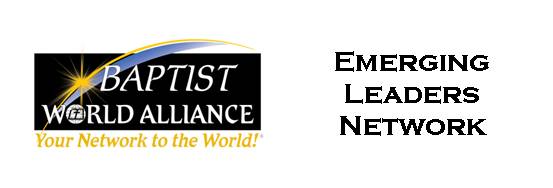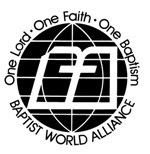By Elijah Brown
I have been thinking lately about the meaning of mission in our contemporary setting. Mission is multidimensional in terms of theology and practice and incorporates various activities from evangelism, service in love, and engagement in societal transformation. Various Baptist groups have long argued that one model or another should function as the primary motif.
David Bosch, however, reminds us that mission is often more of a “mosaic” of complimentary diversity in which different models can function as a source of refinement and enrichment. Bosch identifies six “salvific events” that function both as underlying healthy theology and as representative model of holistic praxis.
First, is The Incarnation of Christ. God in his great love was incarnated within a particular setting and context. The Gospel was commissioned with a relevancy that while it was universal, was also highly particular. Mission is about embracing the reality of Jesus Christ and a principle of universal scope which must remain at the same time, relevant in its specificity.
Second, The Cross. While many often articulate a robust theology of the cross and rightly recognize its importance in terms of redemption and salvation, the cross also speaks to the importance of sacrifice and is a model of kenosis that is to be emulated.
Third and Fourth, The Resurrection and The Ascension. In the midst of death and destabilization, Christians are those who announce a gospel of life in the here and now. Though it has not been fully initiated, the reality of God’s kingdom is real and guided by eschatological principles, the basis on which we are to engage this world.
Fifth, Pentecost. The Spirit draws individuals to Christ while giving Christians the boldness to live courageously. At the same time “the Spirit may not be held hostage by the church, as if the sole task were to maintain it and protect it from the outside world” (517). The Spirit is continually and actively involved in culture and history throughout the world. Bosch – with some legitimacy – claims that we have now “entered into the era of the Spirit” (516). Should this be accurate, many Baptists who have traditionally been weaker in a full understanding of the Spirit, may have a particular need to reexamine this salvific event.
Sixth, The Parousia. The Kingdom of God has already begun, and is within the church already present. However it is not yet fully implemented and it is the knowledge that what we see today is but a darkened mirror of the life and freedom to come that provides us a vision of hope. The Kingdom of God is therefore challenge for today and the joy of what is to come.
Mission will remain diverse in the practical applications adopted by individuals, churches and conventions and unions. This diversity can be a source of strength when we ask ourselves: is my theology and practice built upon and modeled around a motif that embraces incarnation, the cross, the resurrection and ascension, Pentecost and the Spirit, and the parousia of the kingdom that already is and is yet to come?
**See David Bosch, Transforming Mission: Paradigm Shifts in Theology of Mission. Maryknoll: Orbis Books, 1991, 511-519.
February 10, 2009
Subscribe to:
Post Comments (Atom)





No comments:
Post a Comment